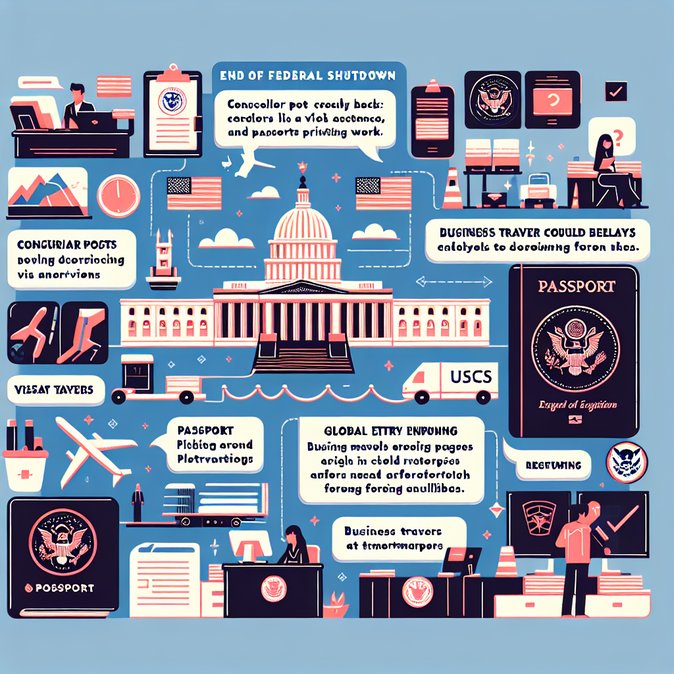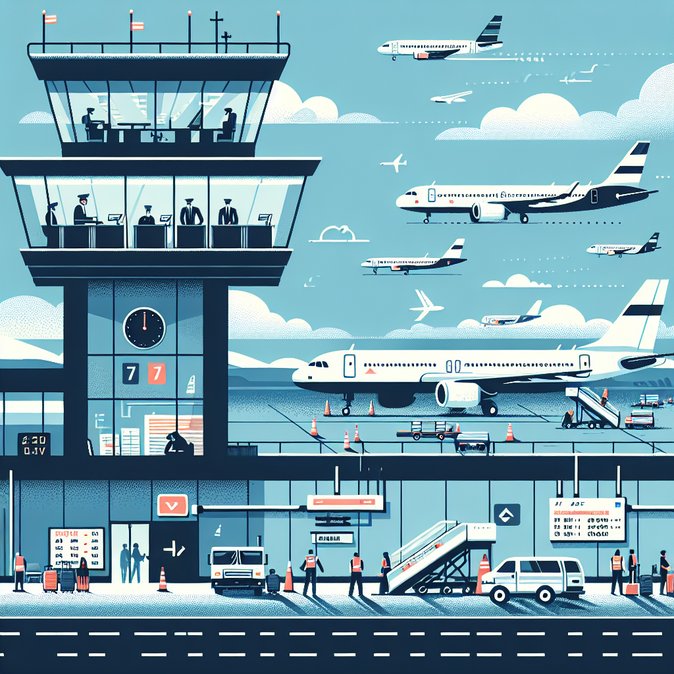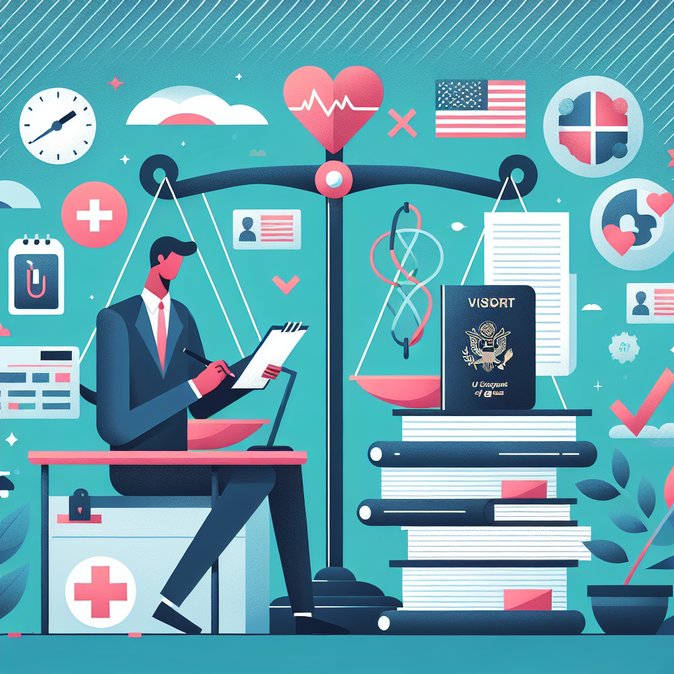
The longest federal shutdown in U.S. history officially ended at 11:37 p.m. EST on November 12 when President Donald Trump signed a stop-gap funding bill that keeps most agencies running through January 30, 2026. Within hours, the State Department instructed embassies and consulates to resume routine visa interviews, passport production and American-citizen services, while U.S. Customs and Border Protection (CBP) and the Transportation Security Administration (TSA) began calling back furloughed staff.
For global mobility managers, the reopening marks the first step toward clearing a six-week logjam that saw more than 480,000 immigrant- and non-immigrant-visa appointments canceled worldwide, 120,000 U.S. passports delayed, and CBP’s Global Entry enrollment interviews suspended. The State Department says back-to-back weekend shifts and overtime will be authorized through December to restore normal capacity; mission-critical cases (medical, humanitarian and diplomatic travel) will be prioritized first, followed by immigrant visas and employment-based categories.
![U.S. Government Reopens After 43-Day Shutdown, Restoring Visa, Passport and Border Operations]()
Business immigration attorneys warn that processing times will remain volatile. Labor Condition Application (LCA) filings queued during the shutdown are only now being transmitted to the Department of Labor, and premium-processing clocks at U.S. Citizenship and Immigration Services (USCIS) will not restart until all associated fees are receipted—likely early next week. Companies with December start dates should prepare for possible onboarding delays and consider remote work alternatives.
Air travelers will also feel lingering effects. Although the Federal Aviation Administration (FAA) recalled 13,000 safety inspectors and air-traffic controllers, it will keep a 6 percent cap on departures at 40 major airports until staffing stabilizes, potentially leading to rolling schedule adjustments through the busy Thanksgiving period. The TSA says PreCheck lanes will operate normally, but REAL-ID compliance enforcement—originally scheduled for random checks this month—has been postponed until at least December 15.
Practical tips: Employers should (1) re-confirm all visa, passport and Global Entry interview dates; (2) build extra lead time into international business trips through year-end; (3) remind assignees that Social Security numbers and work authorizations may be delayed; and (4) communicate with relocation providers about household-goods shipments that were stuck at ports during the shutdown.
For global mobility managers, the reopening marks the first step toward clearing a six-week logjam that saw more than 480,000 immigrant- and non-immigrant-visa appointments canceled worldwide, 120,000 U.S. passports delayed, and CBP’s Global Entry enrollment interviews suspended. The State Department says back-to-back weekend shifts and overtime will be authorized through December to restore normal capacity; mission-critical cases (medical, humanitarian and diplomatic travel) will be prioritized first, followed by immigrant visas and employment-based categories.

Business immigration attorneys warn that processing times will remain volatile. Labor Condition Application (LCA) filings queued during the shutdown are only now being transmitted to the Department of Labor, and premium-processing clocks at U.S. Citizenship and Immigration Services (USCIS) will not restart until all associated fees are receipted—likely early next week. Companies with December start dates should prepare for possible onboarding delays and consider remote work alternatives.
Air travelers will also feel lingering effects. Although the Federal Aviation Administration (FAA) recalled 13,000 safety inspectors and air-traffic controllers, it will keep a 6 percent cap on departures at 40 major airports until staffing stabilizes, potentially leading to rolling schedule adjustments through the busy Thanksgiving period. The TSA says PreCheck lanes will operate normally, but REAL-ID compliance enforcement—originally scheduled for random checks this month—has been postponed until at least December 15.
Practical tips: Employers should (1) re-confirm all visa, passport and Global Entry interview dates; (2) build extra lead time into international business trips through year-end; (3) remind assignees that Social Security numbers and work authorizations may be delayed; and (4) communicate with relocation providers about household-goods shipments that were stuck at ports during the shutdown.


